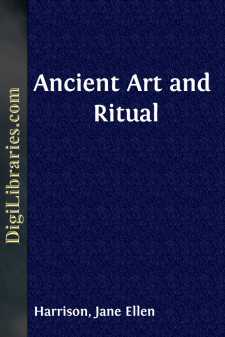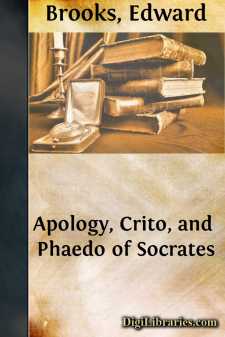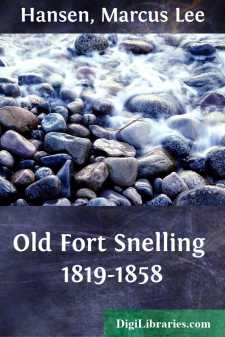Non-Classifiable
- Non-Classifiable 1768
Non-Classifiable Books
Sort by:
by:
Arthur Dimock
PREFACE. The MSS. relating to St. Paul's are deficient in regard to the earlier periods, but become gradually more complete as time progresses. They have been published or quoted, probably, more extensively than those belonging to any other religious foundation in this country, unless it be such communities as St. Alban's, which have attracted the continued attention of the editors working...
more...
by:
Edward Jenner
AN INQUIRY, &c. &c. The deviation of Man from the state in which he was originally placed by Nature seems to have proved to him a prolific source of Diseases. From the love of splendour, from the indulgences of luxury, and from his fondness for amusement, he has familiarised himself with a great number of animals, which may not originally have been intended for his associates. The Wolf,...
more...
CHAPTER I ART AND RITUAL The title of this book may strike the reader as strange and even dissonant. What have art and ritual to do together? The ritualist is, to the modern mind, a man concerned perhaps unduly with fixed forms and ceremonies, with carrying out the rigidly prescribed ordinances of a church or sect. The artist, on the other hand, we think of as free in thought and untrammelled by...
more...
by:
Frank Sidgwick
PREFACE Of making selections of ballads there is no end. As a subject for the editor, they seem to be only less popular than Shakespeare, and every year sees a fresh output. But of late there has sprung up a custom of confusing the old with the new, the genuine with the imitation; and the products of civilised days, ‘ballads’ by courtesy or convention, are set beside the rugged and hard-featured...
more...
by:
Edward Brooks
Introduction. Of all writers of speculative philosophy, both ancient and modern, there is probably no one who has attained so eminent a position as Plato. What Homer was to Epic poetry, what Cicero and Demosthenes were to oratory, and what Shakespeare was to the drama of England, Plato was to ancient philosophy, not unapproachable nor unapproached, but possessing an inexplicable but unquestioned...
more...
by:
Sherard Osborn
AN ARCTIC JOURNAL. The evils attendant on a hurried outfit and departure, as is the usual man-of-war custom, were in no wise mitigated in the case of the Royal Naval Expedition, fitted out at Woolwich, in 1850, to search for Sir John Franklin's Squadron; and a general feeling of joy at our departure prevailed amongst us, when, one fine morning, we broke ground from Greenhithe. The...
more...
The symptoms of cutaneous disease may be objective, subjective or both; and in some diseases, also, there may be systemic disturbance. What do you mean by objective symptoms? Those symptoms visible to the eye or touch. What do you understand by subjective symptoms? Those which relate to sensation, such as itching, tingling, burning, pain, tenderness, heat, anæsthesia, and hyperæsthesia. What do you...
more...
AUTHOR'S PREFACE The position which the military post holds in western history is sometimes misunderstood. So often has a consideration of it been left to the novelist's pen that romantic glamour has obscured the permanent contribution made by many a lonely post to the development of the surrounding region. The western fort was more than a block-house or a picket. Being the home of a handful...
more...
by:
Alice J. Knight
CHAPTER I BARTOLOMÉ THE YOUTH Whenever we hear of a famous man,—whether he be artist, author, statesman, soldier, scientist, great traveler, or missionary,—we like to know what sort of a boy he was. We are curious about his home, his school, his parents, his friends, and all the various influences that helped to make him the man he was. Such knowledge gives us a better understanding of his after...
more...
Extent and condition of the fishery in 1895 and 1896. While the number of nets operated in these two years was practically the same, the catch in 1896 was much greater than in 1895, and was one of the largest in the recent history of the fishery. A comparatively large number of fishermen reported that they took more salmon than in any previous year. The salmon, however, were smaller than usual, and...
more...











